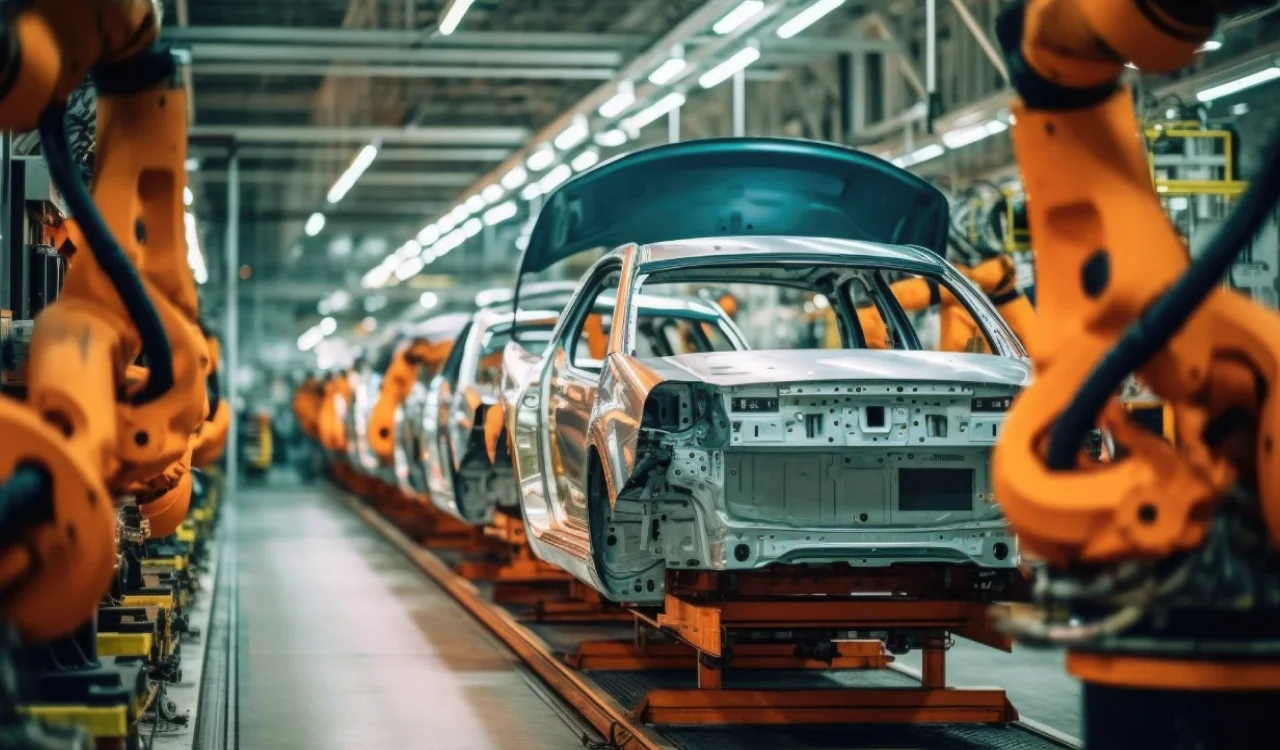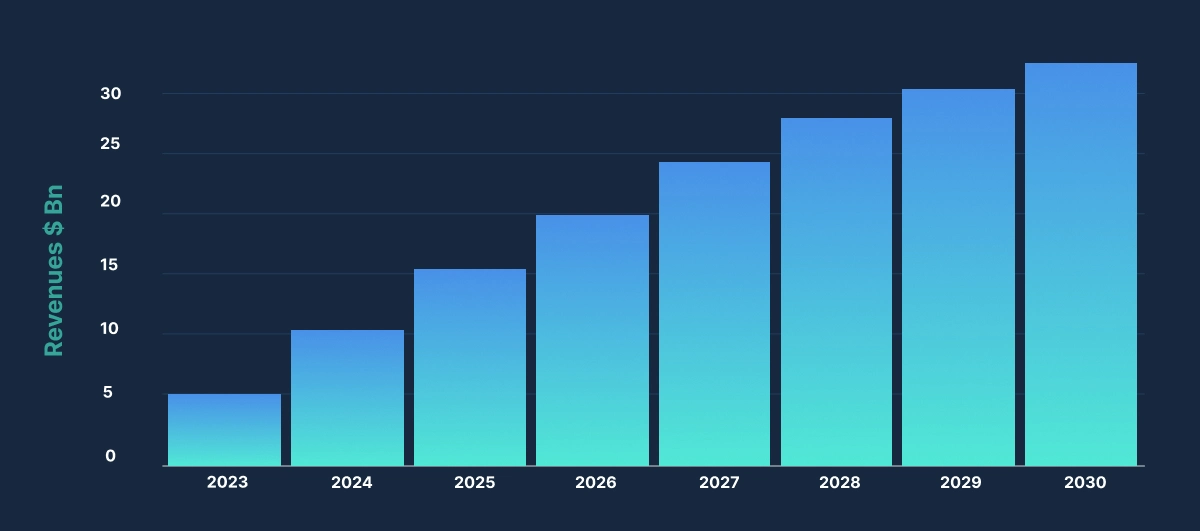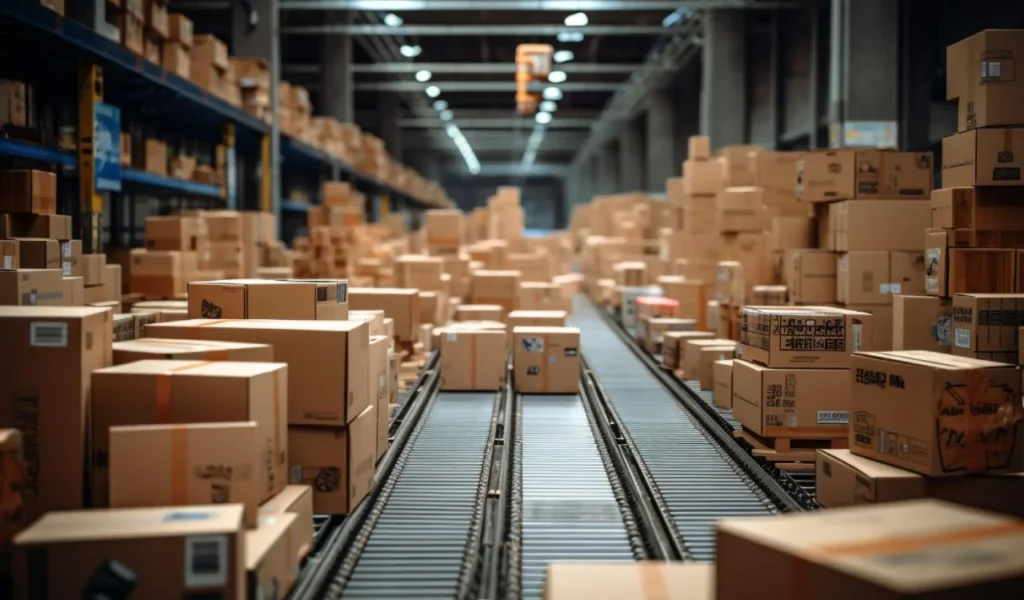The Role of AI in Automotive Industry Supply Chain Management

The automotive industry is a web of networks including suppliers, manufacturers, and transportation within the supply chains that demand, speed, efficiency, and resilience. The ongoing geopolitical issues, changing demands, and market conditions cause major setbacks to the automotive supply chains that are yet to recover from the disruptions caused by the COVID-19 pandemic. AI in the automotive industry emerges as powerful tool, paving the path into how automotive supply chains operate.
Read More: Learn How Generative AI is Transforming Supply Chain Operations
The Need for AI in Automotive Industry
Complexity and Volatility
Traditional logistics systems often struggle to adapt to challenges such as fluctuating demands, diverse component sourcing, and unpredictable disruptions in global trade that ail the automotive industry which lead to inefficiencies and increased costs.
The 2020 chip shortage perfectly illustrates these issues. Automakers, reliant on traditional logistics with limited stockpiles, were forced to cut production due to the lack of chips. This limited supply, coupled with ongoing demand, caused car prices to surge. The chip shortage also rippled through other sectors that depend on these components, leading to price hikes on finished goods across various industries. This situation exposed the vulnerability of economies heavily reliant on “just-in-time” delivery systems, which faltered under unexpected disruptions.
Read More: Learn How the Semiconductor Shortage Affected the Automotive Industry
Customer Expectations
Modern customers demand seamless omnichannel experiences,greater product customization, and faster delivery times. Traditional logistics models lack these expectations, leading to customer dissatisfaction and a decrease in sales. Businesses that prioritize siloed channels, limited customization options, and sluggish delivery times risk falling behind competitors who can deliver a truly frictionless and personalized customer journey.
Sustainability Pressures
In today’s environmentally conscious world, traditional logistics methods that prioritize speed and efficiency above all else are no longer acceptable to consumers. They are aware of the environmental impact of these practices, such as large carbon emissions from transportation and excessive packaging that ends up as waste.
Consequently, they are demanding eco-friendly products and sustainable business practices. This could include everything from using recycled materials in packaging to employing sustainable transportation methods or offering carbon offset programs.
AI in Automotive Industry Supply Chain
AI offers a range of innovative solutions to address these challenges and transform automotive supply chains into smart logistics ecosystems. Here are some essential ways AI is making a difference:
Demand Forecasting with AI in Automotive Industry
With the help of AI, automotive supply chain can analyze data, such as market trends, consumer behaviors, and weather patterns, to aid manufacturers in accurately predicting the demand for vehicle components and maintain a clear and optimized production schedule while reducing inventory costs and avoiding overstocking of products.
Predictive Maintenance
AI can analyze sensor data from vehicles and manufacturing equipment to predict potential failures before they occur. This allows for preventive maintenance, minimizing downtime, reducing repair costs, and ensuring smooth production flow.
The global automotive intelligence market is forecast to experience explosive growth, according to Next Move Strategy Consulting. Projecting a nearly 30-fold increase from 2019 to 2030, the market is expected to balloon from $2.5 billion to a staggering $74.5 billion.
Read More: Learn about AI-Driven Hyper-Personalization and Growth in the Automotive Industry
AI in Automotive Industry Warehouses
With AI, automotive supply chain can analyze sensor data from vehicles and manufacturing equipment to predict potential failures before they occur. This allows for preventive maintenance, minimizing downtime, reducing repair costs, and ensuring smooth production flow.
Read More: Explore the Revolution of Logistics Supply Chains
Benefits of Smart Logistics
AI in Automotive Industry: Predictive Maintenace
Leveraging AI, automotive companies are transforming maintenance with predictive systems. These systems analyze vast datasets from vehicles, identifying potential problems before breakdowns occur. This proactive approach minimizes downtime and optimizes maintenance schedules, leading to significant cost reductions.
Increased Efficiency with AI in Automotive Industry
With the help of AI, automotive industries can automate tasks such as improving decision-making, and streamlining processes, which lead to a more efficient and responsive supply chain.
Improved Customer Satisfaction
Faster deliveries, accurate product availability, and reduced errors mean better customer experience, increasing satisfaction and loyalty. Smart logistics can help automotive industries stay ahead of the competitive curve while keeping potential partners and customers satisfied.
AI in Automotive Industry’s Sustainability
Optimizing logistics reduces transportation emissions and resource waste, contributing to a more sustainable automotive industry.
Implementing AI in Automotive Industry: Challenges and Considerations
Although AI has enormous potential for automobile logistics, there are some challenges to consider:
Data Quality and Integration of AI in Automotive Industry
Access to comprehensive, high-quality data from the whole supply chain is necessary for the implementation of AI. For many manufacturers, who frequently have siloed data systems, this can be problematic.
Investment Costs
Implementing AI solutions requires investment in technology infrastructure, software, and personnel training. This can be a significant upfront cost for some manufacturers.
Role of AI in Automotive Industry Management
By implementing AI, existing workflows may be disrupted as employees might need to keep up with the advancements in technology. With AI, automotive industries can become agile, and deliver seamless performances. Through smart logistics solutions, automotive manufacturers can gain a competitive edge, improve efficiency, and deliver superior customer experience.
Fill out the form below to connect with our supply chain experts and schedule a free demo!

